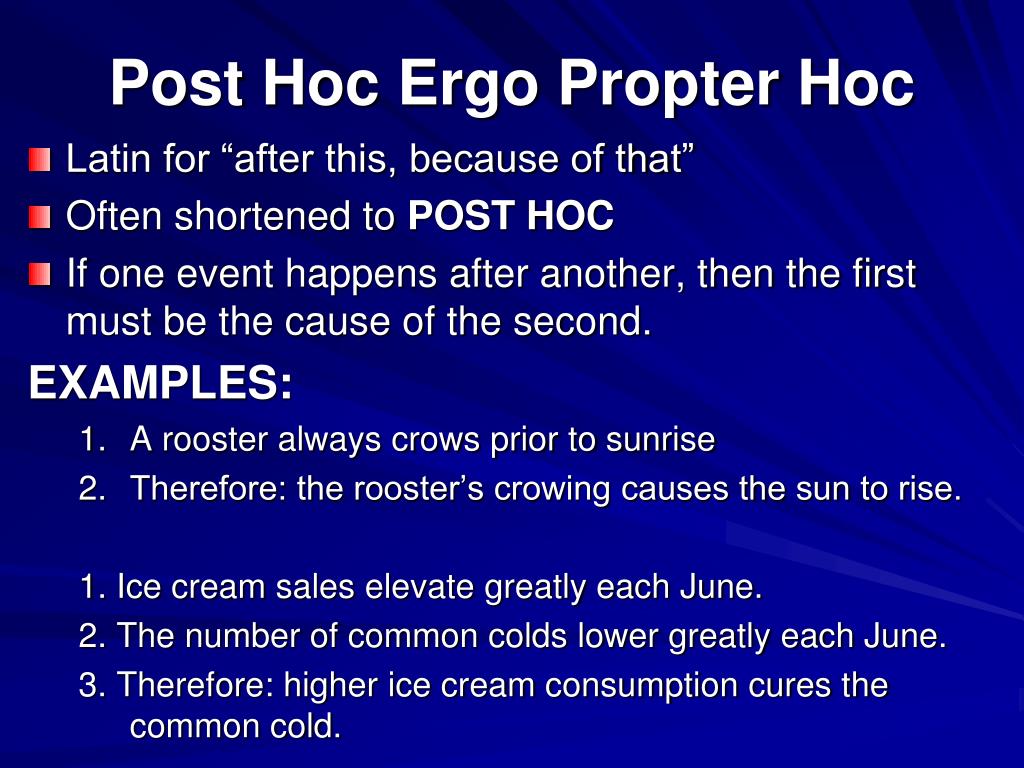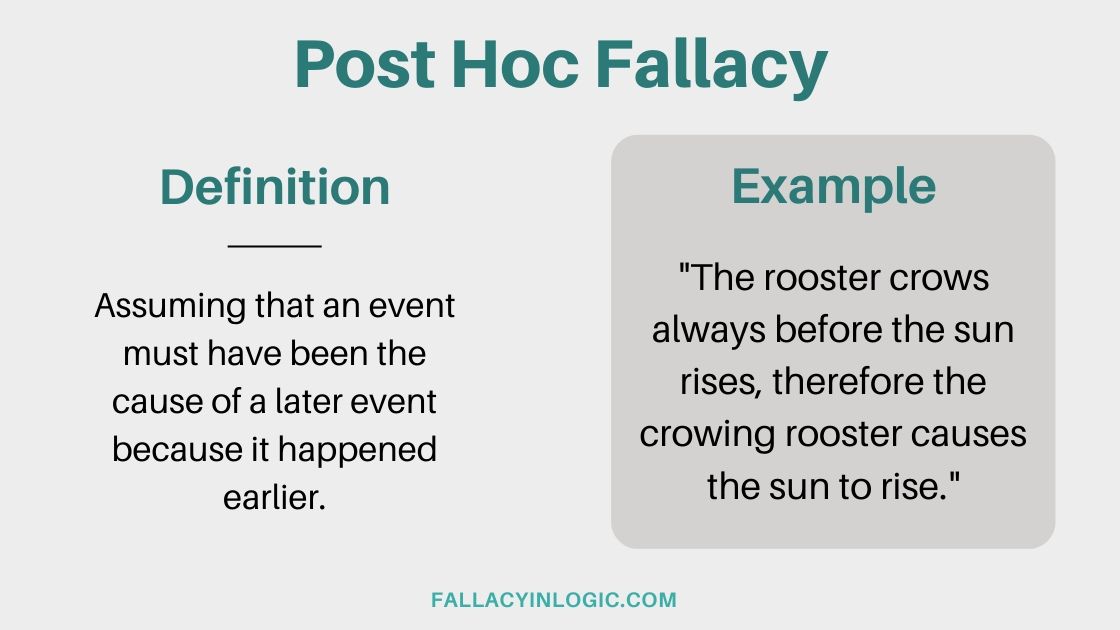If you've ever been to a picnic or family gathering and heard someone say "well, it rained right after we had our barbecue so it must have been our fault for grilling", you've witnessed an example of Post Hoc Ergo Propter Hoc. This phrase means "after this, therefore because of this", and it is a logical fallacy that is all too common. In essence, people assume that just because two events happen closely together, one must have caused the other. But correlations don't always equal causation, and misinterpreting them can lead to faulty conclusions and misguided actions. Here are some examples of Post Hoc Ergo Propter Hoc that you may have encountered, and some tips on how to avoid making this mistake.
Example 1: Vaccines and Autism
What Happened:
In 1998, a study was published in the medical journal The Lancet that suggested there was a link between vaccines and autism. The study focused on just 12 children and had a number of flaws, but it was widely reported in the media and fueled fears about vaccine safety. The result was a drop in vaccination rates, which in turn led to outbreaks of preventable diseases like measles and whooping cough.

What Really Happened:
Further research showed that the original study was fraudulent and that vaccines do not cause autism. The correlation between vaccines and autism was simply a coincidence, as both happen at similar ages. However, the damage had already been done, and many people remain wary of vaccines to this day.
Example 2: Superstitions and Sports
What Happened:
Many athletes are superstitious and have rituals they perform before games or matches. Some believe that wearing lucky socks or listening to a certain song will improve their performance. When they have success, they credit their superstitions with the win.

What Really Happened:
There is no scientific evidence to support the idea that lucky socks or songs actually impact athletic performance. The athletes who credit their success to these superstitions are simply experiencing coincidence or the placebo effect. There are many factors that go into athletic performance, and superstitions are not among the most important ones.
Example 3: Bloodletting and Medicine
What Happened:
For centuries, doctors believed that the way to treat illnesses was to remove "bad blood" from the body through bloodletting. They believed that this would balance the body's humors and restore health. Bloodletting was a common practice, and it was even used on George Washington shortly before he died.
What Really Happened:
While there were some instances where removing blood could actually help a patient, bloodletting was generally ineffective and sometimes even harmful. The correlation between bloodletting and positive outcomes was coincidental, as many patients simply recovered on their own. It took a long time for the medical community to abandon this practice, but eventually, evidence-based medicine became the norm.
Example 4: Ice Cream and Crime
What Happened:
Some people believe that there is a correlation between ice cream consumption and crime rates. The theory is that during the summer months, people eat more ice cream and also commit more crimes, so ice cream causes crime.

What Really Happened:
While it is true that ice cream consumption and crime rates may increase during the summer months, this correlation does not prove causation. There are many other factors that could be causing the increase in crime, such as hot weather or school being out. Additionally, there is no logical reason why ice cream would cause criminal behavior. This idea is simply silly.
How to Avoid Post Hoc Ergo Propter Hoc
So, how can you avoid falling prey to Post Hoc Ergo Propter Hoc? Here are some tips:
- Look for alternative explanations: When two events seem to be related, think about other factors that could be causing both of them. Just because they happen at the same time doesn't mean one caused the other.
- Consider the possibility of coincidence: Sometimes things just happen for no reason. Just because two events happen close together doesn't mean they are related.
- Seek out evidence: If you are presented with a claim that two events are causally linked, ask for evidence to support it. Make sure the evidence is strong and reliable before drawing any conclusions.
- Be skeptical of correlation alone: Correlations can be suggestive, but they do not prove causation. Always look for other evidence before accepting a causal link.
By keeping these tips in mind, you can avoid falling for the Post Hoc Ergo Propter Hoc fallacy and make more informed decisions.
The Bottom Line
Logical fallacies like Post Hoc Ergo Propter Hoc can be insidious, as they may seem plausible at first glance. However, by carefully considering the evidence and taking a critical approach, you can avoid being misled. Remember that correlations do not always equal causation, and don't jump to conclusions without thoroughly examining the evidence. With practice, you can become more adept at identifying and avoiding logical fallacies, and make more reasoned and informed decisions in your daily life.
View more articles about Example Of Post Hoc Ergo Propter Hoc


